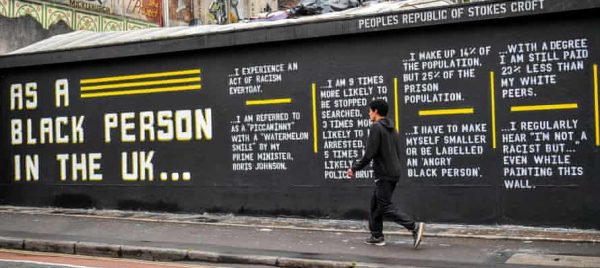
Darryl Morris Weekly – 02.04.21 – Caribbean Experience
A slightly shortened version this week, owing to the Easter weekend, but a bumper three shows for you on talkRADIO. Saturday, Sunday and Monday from 5am. What crime have you committed in a previous life to deserve that, I wonder?
We will, of course, try to wrap our head around the race report. I took a few days off the news this week, and you can never be sure what you’re going to come back to. A government report that reframes slavery as a character building exercise for the shackled is a new one.
“There is a new story about the Caribbean experience which speaks to the slave period not only being about profit and suffering but how culturally African people transformed themselves into a re-modelled African/Britain.”
That was just one of a number of show stoppers in a report that seemed to present evidence that institutional racism exists – pointing out clear disparities in work and health and criminal justice – while its headline concluded that it didn’t.
It’s little wonder it has been met with such a backlash. In the midst of the noise, the Prime Minister’s most senior black advisor quit his job, although No.10 argue it is unrelated. It follows one of the most senior LGBTQ+ advisors, Jayne Ozanne, quitting last year, citing a “hostile environment” for LGBT people.
Let’s lay out the obvious. Tony Sewell – a man who has received enough of a kicking this week to not warrant much more from me – has gone on record in previous years with his already firm belief that institutional racism isn’t as prevalent as people claim. Critics point to this as being the reason he was commissioned to lead the report in the first place. They say it was always the government’s intention to publish a report that found no evidence of institutional racism, and it was always his intention to write one. Couple that with the revelation that several authors and academics have been listed as contributors in the report without actually being consulted on it in the first place, and the document’s credibility begins to crumble.
It’s been an exhausting experience for those who know it, see it and feel it. My esteemed colleague over on our sister station Times Radio, Ayesha Hazarika, wrote this powerful and personal account of that feeling of exhaustion. You can read it here.
This weekend, with a bit of time and space to let the dust settle, we’ll hear from Margaret Greer, Race Policy Officer for UNISON, who will take us through some of the pain points, how they translate, what she feels it got right and wrong. It feels, to me, that we need a bigger conversation about what institutional racism actually is. Why it is so open to interpretation – and if we often get that interpretation wrong?
The gut-wrenching efforts to reevaluate slavery as a positive experience aside, the issue has come up again this week, with the Met Police’s Detective Inspector Nick Bland issuing a stark warning that “there are victims of modern slavery in every borough across London and the public may encounter them every day, possibly without realising.”
It isn’t a problem confined to London. Few towns and cities go untouched. We often think of slavery as a relic of the past – a shameful scar on our history – or a life enhancing “Caribbean experience” if you are so inclined. And yet, it exists all around us.
This weekend, we will speak to an expert to get some perspective on the problem and how we can all play a part in the solution.
See you in the morning.
Oh, hey, while you’re here, do you fancy a quick read of my most recent newspaper column? It’s about that focused determination to make the most of Lockdown 3.0. Click here to read.
April 02, 2021 | No Comments